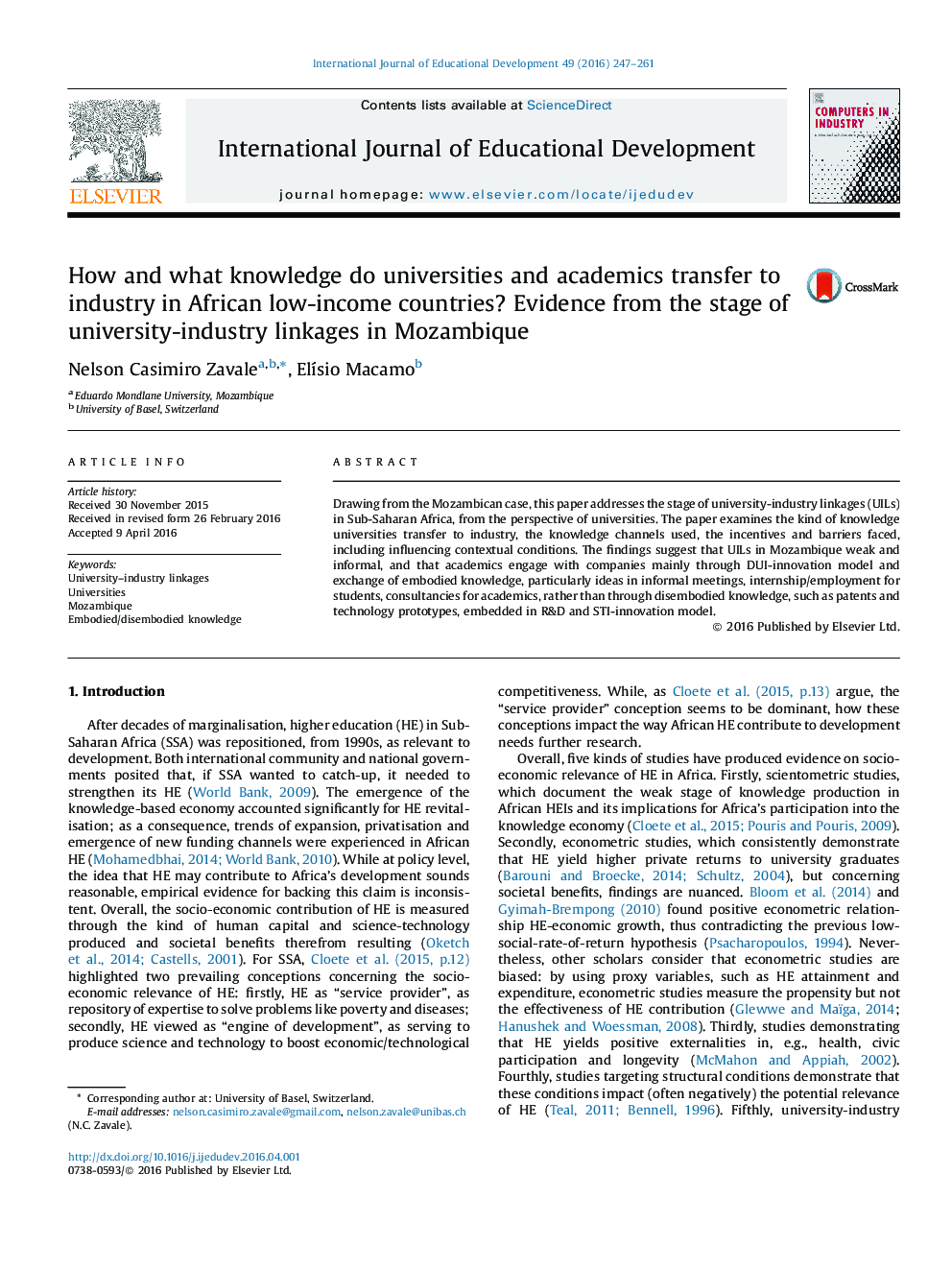| Article ID | Journal | Published Year | Pages | File Type |
|---|---|---|---|---|
| 6841215 | International Journal of Educational Development | 2016 | 15 Pages |
Abstract
Drawing from the Mozambican case, this paper addresses the stage of university-industry linkages (UILs) in Sub-Saharan Africa, from the perspective of universities. The paper examines the kind of knowledge universities transfer to industry, the knowledge channels used, the incentives and barriers faced, including influencing contextual conditions. The findings suggest that UILs in Mozambique weak and informal, and that academics engage with companies mainly through DUI-innovation model and exchange of embodied knowledge, particularly ideas in informal meetings, internship/employment for students, consultancies for academics, rather than through disembodied knowledge, such as patents and technology prototypes, embedded in R&D and STI-innovation model.
Keywords
Related Topics
Social Sciences and Humanities
Social Sciences
Development
Authors
Nelson Casimiro Zavale, ElÃsio Macamo,
